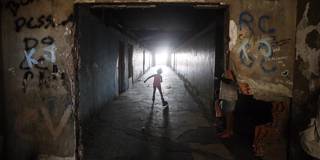Since the restoration of democracy in 1985, Brazil has made notable gains when it comes to taming inflation, expanding welfare assistance, and even reducing poverty. But unless the country can tackle rising inequality and restore faith in its political leadership, these gains could be lost.
RIO DE JANEIRO – “I pray that my family will one day attend fewer funerals and more graduations.” These words, spoken by Douglas, a Brazilian from São Gonçalo, resounded in my ears like a gunshot. Douglas’s father died in a hail of bullets before Douglas was born; his mother was gunned down on his 11th birthday. Like so many Brazilian children his age, he was forced to drop out of school to pay the bills for his siblings.

RIO DE JANEIRO – “I pray that my family will one day attend fewer funerals and more graduations.” These words, spoken by Douglas, a Brazilian from São Gonçalo, resounded in my ears like a gunshot. Douglas’s father died in a hail of bullets before Douglas was born; his mother was gunned down on his 11th birthday. Like so many Brazilian children his age, he was forced to drop out of school to pay the bills for his siblings.